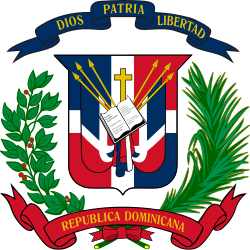 |
|---|
Constitutional Assembly elections were held in the Dominican Republic on 1 June 1929. [1] The role of the Assembly was to review and amend certain articles of the constitution, [2] which resulted in an amendment to repeal the ban on presidential re-elections. [3] Voter turnout was low and in some places ballots were not even counted. [3]